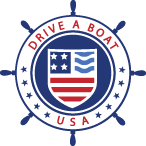USA Boating
Bilge Pumps: Keeping Your Boat Afloat
September 29, 2025
Boaters in the U.S. are often required to have a bilge pump or bailer on board to confirm with federal and state boating safety regulations. This depends on the size and type of your vessel, as well as the specific state regulations where you are operating. The U.S. Coast Guard sets the federal minimum requirements, … Read more ›
Understanding Type III Life Jackets: Features, Uses, and Regulations
For many years, life jackets were categorized and labeled according to their type. Type III was the most commonly used life jacket, designed for activities where freedom of movement was important and there was a good chance of a quick rescue. You can still use a Type III life jacket if it is in good … Read more ›
Identifying and Avoiding River Hazards: Eddies, Strainers & Sweepers
August 25, 2025
Embarking on a journey down a river offers a unique blend of adventure and tranquility, but beneath the surface of the flowing water lie hidden dangers that can turn a peaceful trip into a perilous situation. While the current itself is the most apparent force, experienced boaters know that a true understanding of river safety … Read more ›
Dangers of Solo Boating: Why Going Solo is Risky and How to Prepare
Many people enjoy boating in groups, with friends, family and even dogs sharing the responsibilities for keeping everyone safe, as well as the good times out on the water. But other boaters are exploring another mood: the solo adventure on a lake, pond, or river. The risks of solo boating are often underestimated. It’s important … Read more ›
What Is a Type I Life Jacket?
July 24, 2025
Until recently, life jackets were categorized and labeled according to their type. There were five types, and Type I was designed for the most demanding conditions. Today, any Type I life jacket that is still serviceable can be used safely. However, if you are looking to replace an old Type I in 2025, you will … Read more ›
Your Guide to Jet Ski Safety Requirements
July 15, 2025
Riding a jet ski can be exhilarating, but only if you survive the ride to go out again the next day. It’s important to be familiar with common causes of accidents and injuries linked with PWC operation before heading out on the water – that way, you’ll know what to do to minimize the risk … Read more ›
Why Your Life Jacket Wears Out Over Time & How to Maintain It
April 23, 2025
When you put away your life jacket last fall, everything was in good working order. But now, when you pull it out, it doesn’t look too good. Even worse, when you put it on and test it for buoyancy, it doesn’t seem to be doing its job. What happened? And how can you prevent your … Read more ›
Navigation Sound Signals: Reference for Recreational Boaters
January 29, 2025
Sound signals play a key role in boat navigation. In fact, they are one of the approved types of navigation aid used throughout the United States. Sound signals are effective even in poor visibility and at a distance. However, their use is restricted to specific situations, and boaters must know how to correctly use and … Read more ›
Guide to Aids to Navigation for Boating
If you are boating on a small local pond or other less frequented location, you may not see navigation aids in the area. However, if you take to the water on a larger lake, channel or other busy waterway, you definitely need to know what navigation aids are, how they work and what they mean. … Read more ›
What is a Planing Hull on a Boat?
Planing hulls are designed to allow a vessel to rise up and glide on top of the water at higher speeds. They differ from displacement hulls, which always push through the water. Planing hulls are most often found on: Powerboats Speedboats Sport boats Some fishing boats Personal watercraft (PWC) Some small sailboats Key features of … Read more ›


